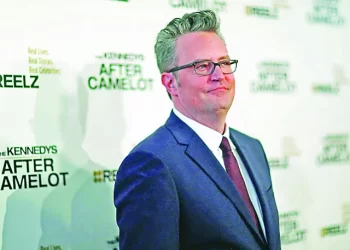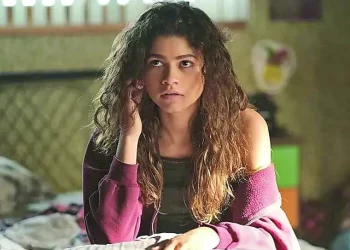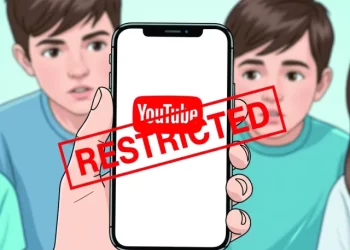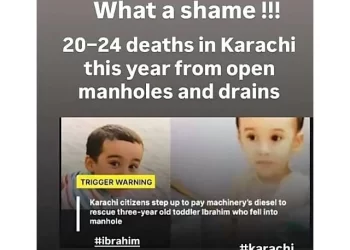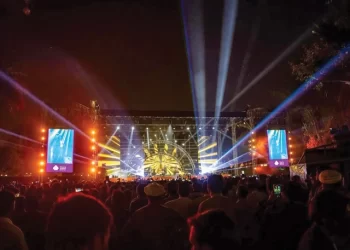Ever found yourself cosying up for a movie night, only for someone to gush over the lead actor until another person inevitably chimes in, “I’m not a fan. They haven’t said a word about Palestine”? Welcome to the new normal, where the currency of cool is shifting. Silence is no longer golden; it’s a deal-breaker, and the celebrities that don’t speak up simply aren’t “cool” anymore. Suddenly, the melodramatic monologues of self-absorbed stars seem as relevant as yesterday’s tabloids. As real people grapple with real crises, the facade of capitalist celebrity culture crumbles like a poorly constructed set.
In an age where social media has become the global town square, the role of celebrities has evolved far beyond their performances on stage and screen. Once, their allure was defined by their talent, glamour, and the mystique they maintained. Today, being “cool” extends far beyond a dazzling smile and an award-winning performance—it’s about the causes you champion, the injustices you denounce, and, most poignantly, where you stand on global issues like the genocide in Palestine.
As Israel’s war crimes continue to intensify, the silence of some celebrities speaks volumes, often louder than any song or film they produce. Fans are no longer willing to give a pass to their favourite celebrities who fail to address the genocide in Palestine. Instead, they are celebrating those who boldly stand in solidarity with the oppressed, effectively reshaping the notion of what it means to be “cool.”
The biggest wave of celebrity support finally came around after a terrible new tragedy struck Gaza. Just two days after being ordered by the International Court of Justice to halt its deadly offensive on Rafah, Israel ramped up its bombing which led to the death of 45 civilians as per Al Jazeera reports.
An AI-generated image with the words All Eyes on Rafah quickly flooded social media. Interestingly enough, many celebrities, from Hollywood, Bollywood and otherwise, shared the AI-image in droves this time. This included Dua Lipa, Lewis Hamilton, Kareena Kapoor Khan, Madhuri Dixit, Varun Dhawan, Pedro Pascal and several others.
As for the other celebrities deafening us with their radio silence, here are a few theories as to why:
They have no idea
While it might sound like a stretch for anyone remotely acquainted with the internet over the past few months, envision a scenario where they’re blissfully shielded from negativity. Perhaps there’s a remarkable algorithm at play, meticulously filtering out any undesirable content. Or maybe they’ve delegated the task to a trusted individual whose sole job is to curate a feed of positivity from adoring fans. But let’s be clear: whether it’s a sophisticated system or a dedicated assistant, none of these excuses hold water. Ignorance, no matter how it’s packaged, simply doesn’t fly in today’s information age.
Horrible PR
It’s no secret that the online crowd is giving them some serious side-eye for their silence. Their PR team has to know that people are furious they haven’t said a word about the genocide taking place. At this point, it’s probably better for their image to speak out rather than staying silent. So, either they have been advised to speak out and they’ve turned a deaf ear, or their PR team should be fired.
“It won’t help”
When fans are practically begging for a peep and insisting that even a whisper from a celebrity could potentially shift mountains, why the hesitation? It’s not exactly a head-scratcher. With their status and a fan base ready to rally behind their every word, the power is in their hands. Heck, even a single Instagram Story could be the spark that ignites change.
Legally silenced
They’re constrained by legalities, or at the very least, speaking out could jeopardise years-long business relationships. Franky, with their wealth in the millions, any legal consequences from breaching contracts would be a mere drop in the bucket.
None of these theories serve as justifications for remaining silent, and those carefully phrasing public statements that are neither here nor there are engaging in dangerous “both side-ism”. This approach falsely equates the aggressor with the oppressed, diluting the stark reality of Palestinian suffering. Still, people attempt to defend their idols by saying, “But they said they want peace for both sides!” The staggering levels of neutrality in such statements are beyond laughable; we should have the sense to reject them outright. The Palestinians, who face daily violence and systemic oppression, require clear, unwavering support, not the ambiguity of “both side-ism.”
The question then arises: is silent solidarity enough? Can celebrities claim to support a cause while avoiding public statements? There is an argument to be made for those who prefer to work quietly behind the scenes, using their resources and connections to effect change without the fanfare. However, in the case of Palestine, where the conflict is highly visible and the oppression blatant, quiet support can often be perceived as inadequate. In a world where injustices are broadcast in real-time, staying silent can no longer be an option for those who wish to remain relevant and respected. The people’s expectation is clear: use your platform for good, or risk being left behind, and it’s a powerful example of the new standards to which we hold our public figures.



